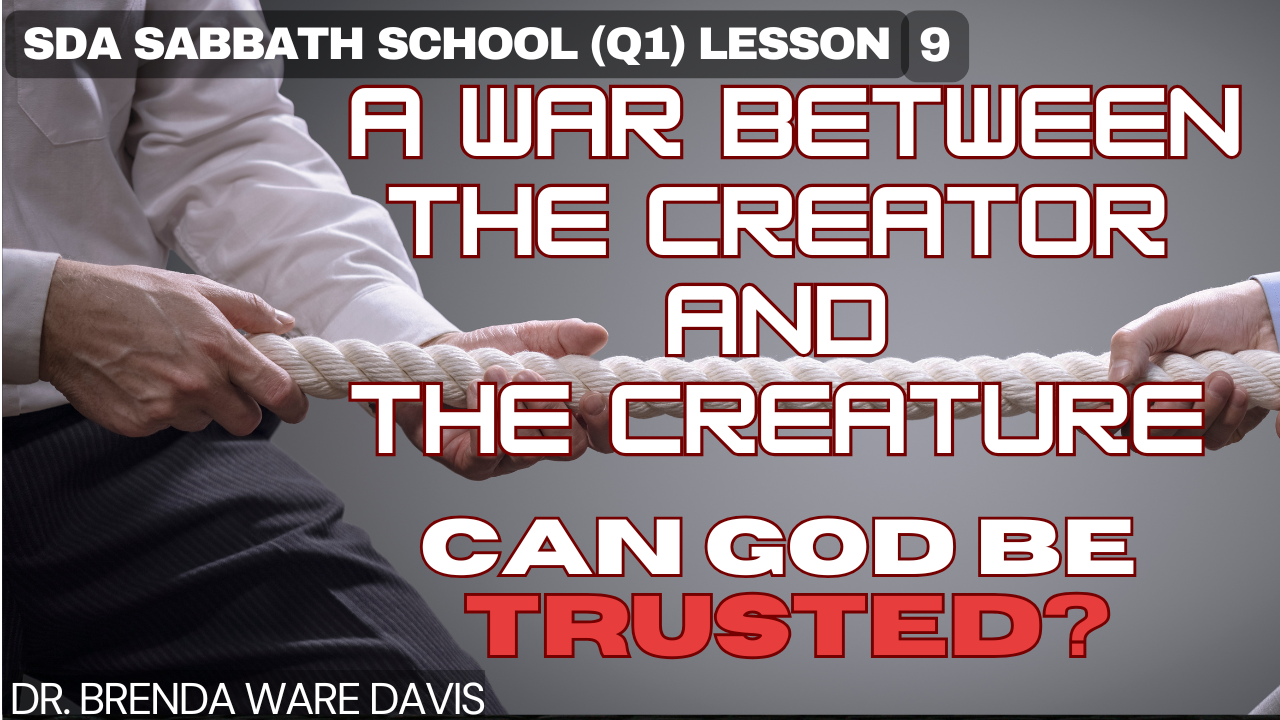Sabbath School 2023, Q1 Managing for the Master (Lesson 5) Dealing with Debt Day 4: Surety and Get-Rich-Quick Schemes
WILL YOU COSIGN FOR ME? Did you know that God warns us against cosigning or being the guarantor for another person? Why should we avoid being cosigners for another person’s loan?
In the Bible, God has provided us with practical guidance on how to live above the stresses of life, and we are given instructions on how to manage the resources He has given us.
In this series,
From a biblical perspective, we are looking at how to manage effectively the resources God has given us while prioritizing What Really Matters.
Review any of our previous lessons @ SabbathSchoolDaily.com. (Split)
Also, you can obtain the study guide to these lessons @ Sabbath.School or ssnet.org (Split)
Talking to the Father
Holy Father, you have advised us to be wise yet harmless. Help us to recognize how best to assist those that are in need and are desiring our help. In Jesus’ Name, Amen
When we are not in debt and when we are not a servant to the lender, that puts us in a good position to help others. Just as God warns about the pitfalls of debt, He warns us against becoming responsible for the debt obligations of another. This we find in the book of Proverbs. There God warns us against becoming surety for another. A surety is consigning or being a guarantor for another debt.
Here is what Proverbs says about this.
Proverbs 6:1-5
1 My son, if you become surety for your friend, If you have shaken hands in pledge for a stranger,
2 You are snared by the words of your mouth; You are taken by the words of your mouth.
3 So do this, my son, and deliver yourself; For you have come into the hand of your friend: Go and humble yourself; Plead with your friend.
4 Give no sleep to your eyes, Nor slumber to your eyelids.
5 Deliver yourself like a gazelle from the hand of the hunter, And like a bird from the hand of the fowler. (Proverbs 6:1-5)
Proverbs 17:18
18 A man devoid of understanding shakes hands in a pledge, And becomes surety for his friend. (Proverbs 17:18)
Proverbs 22:26
26 Do not be one of those who shakes hands in a pledge, One of those who is surety for debts; (Proverbs 22:26)
There are times when people need to borrow money. But over the years, they have developed a habit of not paying their debts. Therefore, they obtain poor or bad credit, so the lending institutions will not loan them money.
Instead, the loan officer for the lending institution advises the unqualified person to get a friend or family member to cosign for them.
The lending institution agrees to loan the borrower money if they can get someone to cosign for them. But, if the borrower does not pay the loan back, the bank holds the cosigner responsible for the loan. The consigner, therefore, must pay off the loan.
How, then, should we respond to those who ask us to be a cosigner for a loan? You may respond by saying that “I am sorry, I cannot do that. God advises us to not be a cosigner for loans of another.”
Although the Bible encourages us to be helpful to those in need. God does not expect and warns us not to become responsible for the loan of another.
But what about family members such as our teenagers who ask their parents to sign a loan for their first car? Or older children who ask parents to sign a business loan so they can start a business or get a house.
It is your choice but our response in regard to being a cosigner should be the same. Yes, we should help our families who have a real need. But we should not agree to become responsible for other people’s loans.
Studies show that 75% of people who cosigned for a loan end up having to pay off the loan themselves. And in many cases, the borrower pays so irregularly that the consigner ends up with poor credit because of the borrowers’ habit of slow paying or not paying at all. (Split)
Another money trap is the get-rich-quick schemes.
Here is what Proverbs 28:20 and 1 Timothy 6:9, 10 say about those who fall for these traps.
Proverbs 28:20
20 A faithful man will abound with blessings, But he who hastens to be rich will not go unpunished. (Proverbs 28:20)
I Timothy 6:9-10
9 But those who desire to be rich fall into temptation and a snare, and into many foolish and harmful lusts which drown men in destruction and perdition.
10 For the love of money is a root of all kinds of evil, for which some have strayed from the faith in their greediness, and pierced themselves through with many sorrows. (I Timothy 6:9-10) (Spllit)
Listen here to what it says about those who are poor managers who are in a hurry to get rich. (Split(
There is a class of poor…who … are poor managers, they have not wise judgment, they wish to obtain means without waiting the slow process of persevering toil. Some are in such haste to better their condition that they engage in various enterprises without consulting men of good judgment and experience. Their expectations are seldom realized; instead of gaining, they lose, and then come temptation and a disposition to envy the rich. They really want to be benefited by the wealth of their brethren, and feel tried because they are not. But they are not worthy of receiving special help. They have evidence that their efforts have been scattered. They have been changeable in business, and full of anxiety and cares which bring but small returns. Such persons should listen to the counsel of those of experience. But frequently they are the last ones to seek advice. They think they have superior judgment and will not be taught. . . . They do not take home the instruction of Paul to Timothy: “But godliness with contentment is great gain.”—Testimonies for the Church, vol. 1, pp. 480, 481.
These schemes are a sure road to financial ruin. They are designed to cheat you out of your money. When a plan to get rich looks too good to be true, that’s because it is.
The problem is made worse because many people must borrow money to get involved in the plan in the first place.
These get-rich-quick schemes have destroyed many homes. The only ones getting rich from the schemes are the criminals who invented the plan.
So, beware of friends or loved ones who tries to pull you into one of these schemes. Run from them. Do not walk away. Run! Run away as fast as you can.
There are times and circumstances, however, in which we may have to take out a loan, perhaps for a home, a car, or for you or your children’s education. What factors should be considered when taking out a loan?
Day 6: Term Limits and Borrowing Points
If you don’t have a church home and wish to return tithe or give an offering, consider giving online,
@ Adventistgiving.org
my local Church:
Hebron Seventh-day Adventist Church 7902 Wheatly Street Houston, TX 77088
Watch Past and Present Lessons @ SabbathSchoolDaily.com














Post Comment